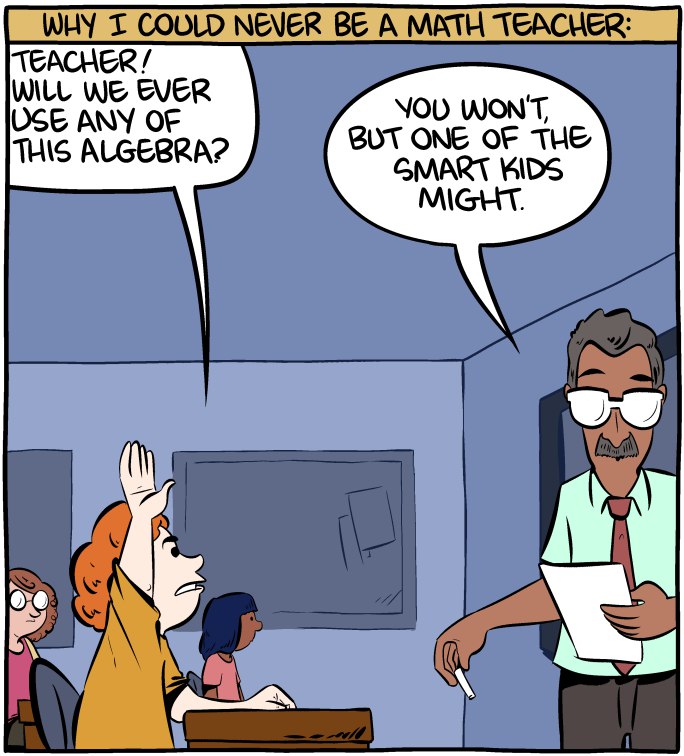Ranter
Join devRant
Do all the things like
++ or -- rants, post your own rants, comment on others' rants and build your customized dev avatar
Sign Up
Pipeless API

From the creators of devRant, Pipeless lets you power real-time personalized recommendations and activity feeds using a simple API
Learn More
Comments
-
 kobenz9792yLooks recursive, giiiimme! give it to meeeee!!!! I want, no I need, to see it!
kobenz9792yLooks recursive, giiiimme! give it to meeeee!!!! I want, no I need, to see it!
----
pretty please? -
@kobenz it is recursive from what I can see. The search depth is equivalent to log(n)!
I'd be willing to jump into a screen share with you after I organize the code and write a better demo. -
@kobenz I was at work when I posted this so I got a couple things wrong.
The search space is actually the factorial of (log(log(n))**2) from what it looks like. -
 kobenz9792yShit, if it's recursive you can write that function, memoize it and pretty print that cache for us.
kobenz9792yShit, if it's recursive you can write that function, memoize it and pretty print that cache for us.
-- also, I don't wanna out myself lol -
@kobenz "looking up the bytecode could also be enough."
I don't follow.
Also I know the complexity claim is bonkers but its just a hunch from what I've seen.
What I did was generate a set of semiprimes and their sequences from the algorithm. Then I sampled the ones the algorithm failed on at the initial sequence and ran *those* outputs through sums (plus and minus) from randomized samples on the sequence output to check if they had q or p as factors or were coprime instead.
And it turns out some of the sequences, which failed (were coprime), but on a recursive search the subsequent modified sequences had the factors in question.
Simplified, if the sequence I'm searching is X0, X1, X2, ..., Xk, generated from N, then even if Xi failed, Xk +/- [Xj, ..] succeeded, where Xj is a set of samples from X.
This worked for multiple levels of recursion in some cases. -
addendum
The hunch is that by searching some (parameter optimized) set of additions/sub of X, we will always land on some Value Xk +/- [Xj..]
that is coprime to p but has q as a factor (or is coprime to q but has p as a factor or a multiple thereof)..which is what I've seen so far, sort of like (in a distant manner of speaking, like if you squint at the problem) like diophantine equations. -
The other thing I'm wondering about is if there are any alternative sequences, with distributions such that sums of the sequence's random samples maximize the probability of converging on sum(X..) such that sum(X) mod (p||q) == 0||((p*i)||(q**k))
on the basis that many problems in NP don't appear to have easy solutions, but *do* have relatively fast *probabilistic* solutions--especially having seen what I've already seen in the data. -
 kobenz9792y@Wisecrack cuz with bytecode you can literally count instructions.
kobenz9792y@Wisecrack cuz with bytecode you can literally count instructions.
Let me see if I get that right.
you ran the algo, got some stuff right 👍🏻 the stuff that was wrong 👎🏻 you "clamped" 🪠 those to a random space and found the correct values in that space somewhere.
How did you generate that randomness? That could be what's missing from your algo. -
 kobenz9792yMy 2 cents would be trying to solve that random sample to find out if they define a space. That space, if found, will be your parameters
kobenz9792yMy 2 cents would be trying to solve that random sample to find out if they define a space. That space, if found, will be your parameters -
 kobenz9792yhowever, it will depend on where your randomness came from. Obviously, if it was pseudorandom-ish, you probably will find some literature out there about what you witnessed
kobenz9792yhowever, it will depend on where your randomness came from. Obviously, if it was pseudorandom-ish, you probably will find some literature out there about what you witnessed
Related Rants

 Math is hard.
Math is hard. When you wanted to know deep learning immediately
When you wanted to know deep learning immediately :)) finally a good answer
:)) finally a good answer
I may have accidentally found a legit factorization method that converts factoring to a combinatorics problem over a graph, with a time complexity that is the factorial of the logarithm of the semi prime being factored.
I don't know if this is supposed to be good or not, and I don't want to post it prematurely like I almost always do. Not at least until I study its properties better, but it's still a pretty interesting find I think.
random
math